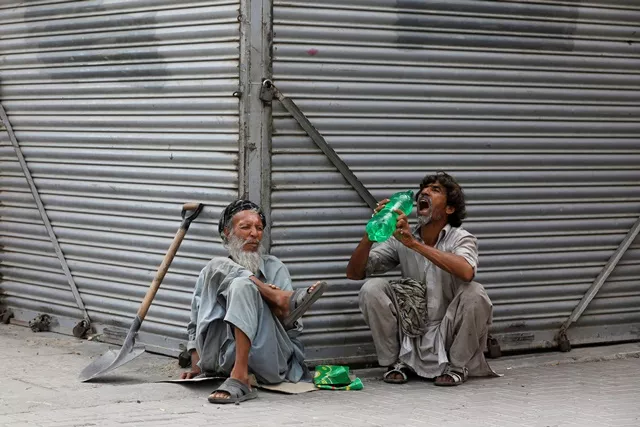Economy to remain sluggish in coming months: report
Pakistan’s trade volume to shrink as a result of slowdown in global demand, according to PPR
ISLAMABAD: The coronavirus pandemic has started a trend of low purchasing, fear of losing jobs and low returns on investments that will not only persist in the country but will increase in the coming months, said the Pakistan Prosperity Report (PPR) launched on Friday.The report, launched by the Policy Research Institute of Market Economy (PRIME), aims at providing a monthly review of Pakistan's macroeconomics based on the analysis of four variables – industrial production, trade volume, price levels, and private sector lending.
The concept of the PPR is intuitive – higher level of industrial output, increases in trade volumes, more lending to the private sector and an improvement in purchasing power of individuals are indicators of a strong economy, signaling prosperity of both firms and households.
The PPR covers time period from June 2019 to February 2020. The analysis reveals that economy’s prosperity has increased by 0.96 per cent in February 2020 relative to January 2020 while experiencing an overall increase since June 2019.
This increase in economic prosperity is largely attributable to a rise in purchasing power, a surge in long-term financing facility and an increase in trade volume between the two months. However, the output of large-scale manufacturing (LSM) industries slightly declined between January and February 2020.
Pakistan's economic revival to take time
For February 2020, the month-on-month inflation rate and quantum index of LSM decreased by 1 per cent and 0.91 per cent respectively. In contrast, the trade volume index and the long term financing facility (LTFF) increased by 3.20 per cent and 3.63 per cent.
The report expects that amid the coronavirus pandemic, Pakistan’s trade volume will shrink as a result of the slowdown in global demand.
The production of large scale manufacturing industries is likely to contract due to partial lockdown which will adversely affect the trade volume. Meanwhile, inflation might increase due to decrease in domestic production and shortage of essential commodities.
On the other hand, commercial banks’ lending to private sector for long-term fixed investment might further increase in the hope of stimulating construction and export-oriented sectors.
With the recent amnesty scheme announced for the construction sector which is awarded the status of an industry now, it is expected that the banking credit will flow more into this sector at the expense of other sectors.
It said although the incentive package is provided to save people from hunger and poverty in the wake of the coronavirus outbreak, it is more than likely to benefit the well-established builders and developers than the daily-wage workers.
These incentives are expected to increase the demand and subsequently, the price of land. Moreover, at a time when demand across other industries particularly manufacturing is depressed, there will be a lot of productive businesses which would find it more lucrative to invest in construction than other sectors.


COMMENTS
Comments are moderated and generally will be posted if they are on-topic and not abusive.
For more information, please see our Comments FAQ